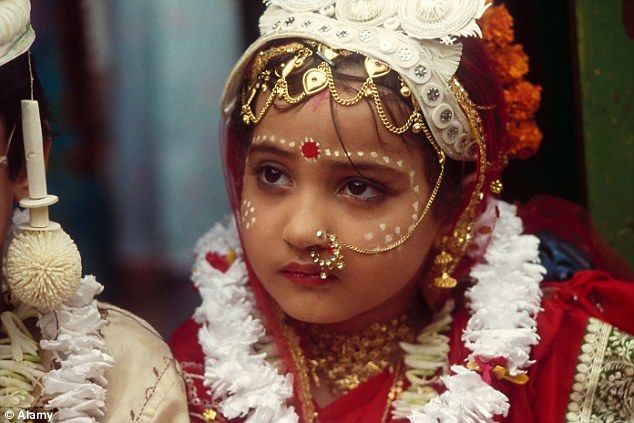India’s supreme court has struck down a law allowing men to have sex with children as young as 15 provided the pair are married.
But the court stopped short of revoking an exception in the country’s criminal law that permits rape in marriage, currently the subject of separate legal proceedings.
A two-judge bench of India’s highest court was responding to a public interest lawsuit arguing that the exception to sexual assault laws for “a man with his own wife, his wife not being under 15 years of age” encouraged child marriage.
Indian child protection laws already prohibit an adult from having sex with someone below the age of 18.
But its criminal code had included an exception for married couples, in a country where around 46% of women aged between 18 and 29 were married before reaching legal adulthood.
“We are left with absolutely no other option but to harmonise the system of laws relating to children,” Justice Madan Lokur said in his decision.
An analysis of the most recent national census by the data journalism initiative India Spend estimated that nearly 12 million Indian childrenunder the age of 10 were married. The majority were girls from poor, rural families with little or no education.
The previous legal regime meant a 17-year-old boy who had consensual sex with another girl his age could be charged with statutory rape, while a 50-year-old who raped his 15-year-old wife was committing no crime.
Successive Indian governments have defended the exception, arguing that social and economic conditions in many parts of the country make child marriage an unfortunate reality, one that needs to be addressed by development programmes rather than the law.
Early marriage is deeply woven into the traditions of many Indian communities, though the “gauna” ceremony, where the wedding is consummated, is usually delayed until the girl reaches puberty.
Mass child marriages occur in many parts of the country on days considered auspicious in the Hindu calendar, such as the Akshaya Tritiya festival.
Kriti Bharti, a pioneering activist credited with preventing thousands of child marriages in Rajasthan state, said the judgment was a welcome starting point.
She said community attitudes in favour of child marriage were deeply entrenched, and parents of young girls often presented an obstacle to her work.
“A minor girl being abused by her husband will tell her mother: ‘I’m feeling pain. [Sex] is uncomfortable. Please help me,’” she said. “But mothers say: ‘It’s your destiny. You are a female so you have to go through this.’”
Bharti acknowledged that Wednesday’s decision would be difficult to enforce but could have long-lasting consequences. “From now on, a girl who is exploited can go to the police, can go to the justice system and say: ‘I am being abused,’” she said.
The judges on Wednesday restricted their decision to marriages involving a minor only, declining to comment on whether the entire marital rape exception should be scrapped.
The Delhi high court is currently hearing a challenge to that law, which prevents women from pressing charges for rapes committed by their husbands.
The Indian government opposes the change, arguing it would “destabilise the institution of marriage” and put husbands at risk of “harassment”.
Rape in marriage was recognised in British law in 1991 and across the United States by 1993.
Last month the Indian supreme court also struck down a law permitting Muslim men to divorce their wives by communicating the word “talaq” – Hindi for divorce – three times.
source https://www.theguardian.com

















